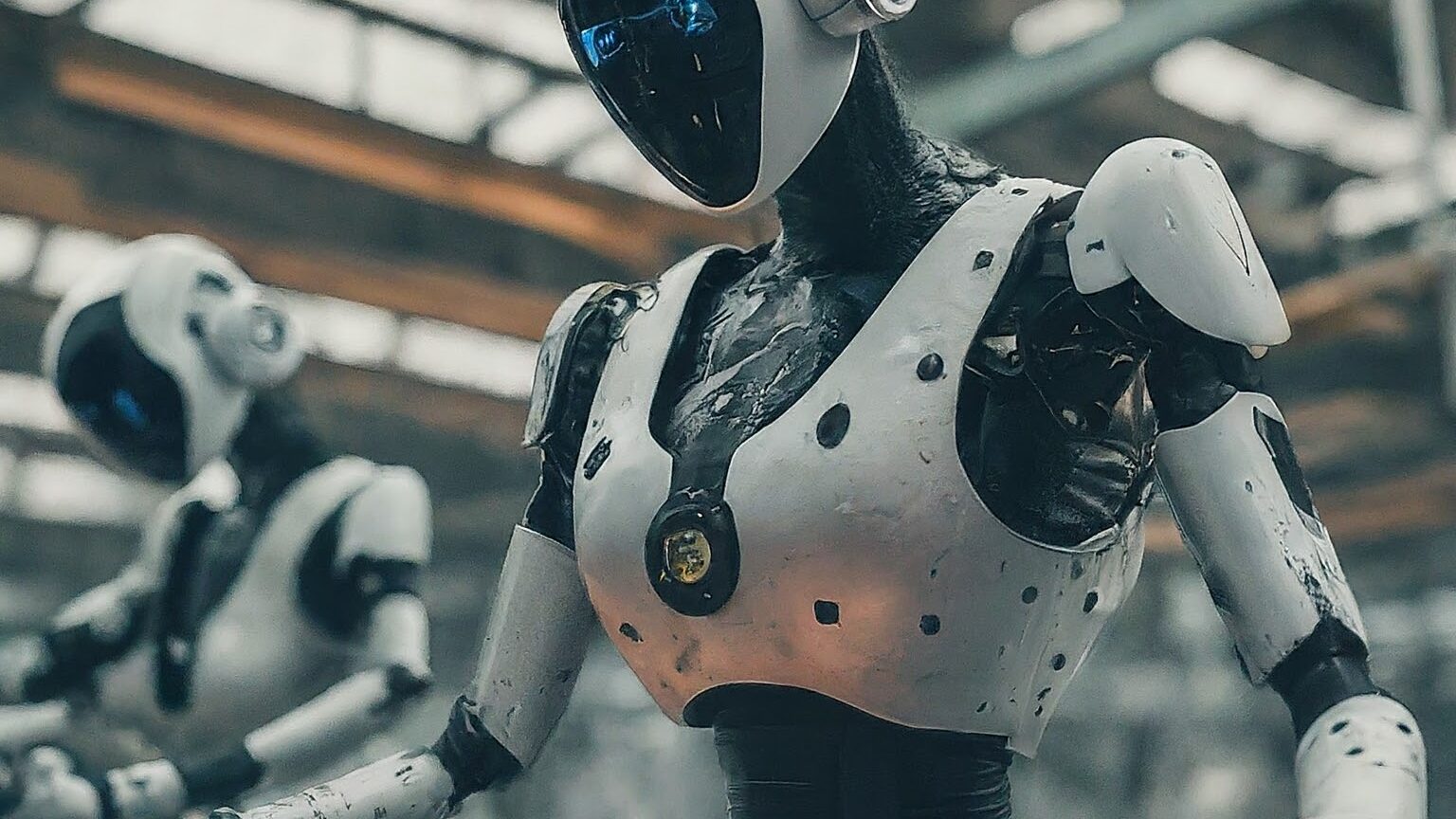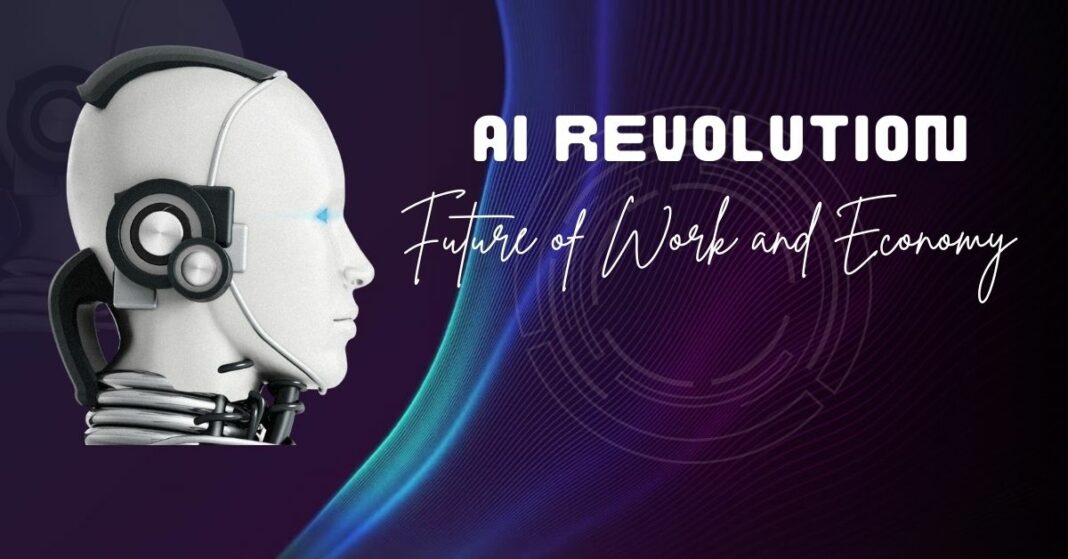In this day of rapidly advancing technology, the influence of artificial intelligence on job environments is a topic of great discussion. Some experts predict a dystopian future where AI-powered machines displace human workers, leading to mass unemployment and economic disruption. Others envision a more optimistic scenario: AI creates new jobs and opportunities introducing the future of work, driving economic growth and innovation. Everyone has their idea of the AI revolution, let us read further to know about it better.
But what does this mean for the future of work and the global economic impact of AI? We delved into a fascinating conversation with macroeconomist, global investor, and educator Raoul Pal to gain a deeper understanding.
Table of Contents
Raoul Pal’s Vision: An Economic Singularity on the Horizon

Raoul Pal, renowned for his accurate predictions of the 2008 mortgage crisis and Bitcoin’s meteoric rise, offers a fascinating glimpse into the future. He envisions an “economic singularity” by 2030, a pivotal point where our current economic models become inadequate to explain the transformative power of AI. This paradigm shift, he argues, will be driven by three intertwined forces:
- The Rise of Infinite Knowledge and Wisdom: Pal defines AI as the ability to unprecedentedly scale knowledge and wisdom. As AI systems continue to change, they will not only amass vast amounts of information but also develop the ability to reason, analyze, and make decisions with human-like, or even superhuman, intelligence.
- A Robotic Workforce on the Rise: The integration of Artificial Intelligence into robotics will result in an exponential increase in the robotic workforce. Robots, tireless and increasingly sophisticated, are already replacing people in various industries, from manufacturing to customer service. This trend will inevitably accelerate, reshaping the nature of employment and prompting us to rethink traditional economic models.
- The Advent of Cheaper Energy: Advancements in energy production, particularly in renewable sources like solar and wind power, coupled with potential breakthroughs in nuclear fusion, promise to dramatically reduce energy costs. This decrease in energy prices will fuel unprecedented productivity gains, further accelerating economic growth and amplifying the impact of AI and workforce automation.
The Looming Question of AI and Employment: Will AI Take Our Jobs?
As Artificial Intelligence continues its relentless march forward, concerns about its impact on employment are reaching a fever pitch. Will AI-powered machines render millions of workers obsolete, leading to widespread unemployment and economic turmoil? Or will it create new job opportunities, fostering a more prosperous and innovative society?
Pal acknowledges these concerns but suggests a nuanced perspective. While AI will undoubtedly displace many jobs, particularly those involving repetitive or routine tasks, it will also create new ones that require uniquely human skills, such as creativity, critical thinking, and emotional intelligence. The key, he emphasizes, is to adapt and prepare for this new reality.
Wealth Distribution in the Age of AI Revolution: A Call for Fair Taxation
The rise of AI and robotics also raises critical questions about wealth distribution. As machines increasingly contribute to economic output, the potential for wealth concentration in the hands of a few tech giants becomes a real concern.
Additionally, Pal proposes a simple yet powerful solution: taxing robots like humans. If machines are generating economic value, they should contribute to the collective well-being through taxation. This could lead to the implementation of universal basic income programs, ensuring that everyone benefits from the AI-driven economic boom.
Embracing the Unpredictable: Navigating an Uncertain Future
The future is inherently uncertain, especially when it comes to the disruptive potential of AI. What will the world look like in 2030 and beyond? How will we earn a living in an AI-dominated economy? While we cannot predict with certainty what the world will look like in 2030 and beyond, we can prepare ourselves for a wide range of possibilities.
Pal’s advice is to focus on building financial security in the present. By investing in our skills, education, and entrepreneurial endeavors, we have the ability to create a safety net that will enable us to adapt and thrive in an ever-changing world.
The Time to Act is Now: Future of Work with AI Revolution
While the full impact of AI on the job market may still be years away, its effects are already being felt. AI-powered technologies are automating tasks in various industries, leading to job losses in some sectors. However, AI is also creating new jobs that require skills in data science, machine learning, and AI development.
Furthermore, The extent to which AI will affect individual jobs in the next six years depends on various factors, including the industry, job skills, and willingness to adapt to change. Automating jobs that require a lot of regularity and predictability is more likely to happen to jobs that require creativity, problem-solving skills, and emotional intelligence.
Preparing for the AI-Driven Economy: AI and Economy

To navigate this changing landscape, individuals, governments, and organizations need to take proactive steps. Here are some key strategies:
- Individuals: Develop in-demand skills, embrace lifelong learning, and focus on creativity and problem-solving abilities.
- Governments: Implement policies that support skill development, education, and the establishment of new jobs in emerging industries.
- Organizations: Invest in AI-powered technologies while ensuring that human workers are equipped with the necessary skills to collaborate with AI and contribute to overall productivity.
Conclusion: AI Revolution
Lastly, the future of work is upon us, and AI is at the forefront of this transformation. By embracing change, investing in skill development, and fostering collaboration between humans and machines. It’s a future full of both challenges and opportunities, and it’s up to us to shape it for the better. To engage in more such insightful and helpful topics, go to our website.
FAQs: AI and Economy
Q. How will AI impact the future of work?
We can already witness AI’s touch in all the manual and repetitive tasks. Humans try to inculcate AI in all the present opportunities to enhance and pace up their work. We can expect artificial intelligence to do all the creative, mundane, etc. kind of work in the future.
Q. What industries will be most affected by AI?
Personally, the economic impact of AI will be witnessed in the healthcare, marketing, finance, and education sectors.
Q. Will AI lead to mass unemployment?
To know about this you can go through the blog written above and know the future of work with the AI revolution.
Q. What skills will be in demand in the age of AI?
Some of the skills that will be in demand in the age of AI are as follows:
- Creativity
- Data Analysis
- Machine Learnings
- Algorithms
Q. How will AI affect the global economy?
According to McKinsey, the AI and economy together are a blessing for an additional economic output globally. This will be achieved by workforce automation.






